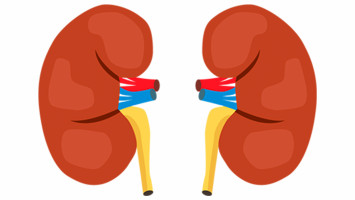
A team of researchers from The University of Texas Health Science Center at San Antonio confirmed the role of a certain protein in the development of high-grade kidney cancer.
The researchers also showed that a higher level of the protein can be used as a marker to predict which tumours will develop treatment resistance and progress more rapidly.
Dharam Kaushik, MD, led the study published in the journal Translational Research.
Dr. Kaushik is an associate professor of urology in the Long School of Medicine at the university, also called UT Health San Antonio.
He also is a genitourinary oncologic surgeon at the Mays Cancer Center, home to UT Health San Antonio MD Anderson.
"About 30% of patients with kidney cancer are not diagnosed until their cancer has spread to other parts of the body. Metastatic disease is notoriously resistant to current targeted therapies. In 2018, there were about 403,262 new cases of kidney cancer and 175,098 related deaths worldwide. Therefore, there is an urgent unmet need for developing new tools to predict which cancers will develop into high grade that are resistant to treatment," Dr. Kaushik said.
In previous preclinical and animal studies the researchers proved that the protein - nicotinamide adenine dinucleotide phosphate (NADPH) oxidase-4 (Nox4) -- often called Nox4, was involved in promoting the more serious cancer.
In the current study, the researchers studied the treatment records of 350 patients who had kidney cancer between January 2013 and June 2016.
Their results showed that Nox4 also concentrates in the nucleus of human kidney cancer cells.
The findings were bolstered by a series of statistical analyses using clinical data of patients who survived or died from kidney cancer.
The combined results suggest that nuclear Nox4 expression may be an independent marker of disease progression and poor survival in patients with high-grade, advanced-stage kidney cancer.
"Our analysis showed that a high level of nuclear Nox4 is an important marker predicting resistance to targeted therapy. To our knowledge, this is first report of nuclear Nox4 localization and the correlation with disease progression, poor survival and development of resistance to targeted/immune therapy in kidney cancer," he said.
During the study, the researchers also identified a smaller group of patients with high levels of nuclear Nox4 who had rapid disease progression or died within six months of surgery. "These patients would be ideal candidates for a future study of survival outcomes using adjuvant targeted therapy that includes a Nox4 inhibitor." Dr. Kaushik said.
Source: University of Texas Health Science Center at San Antonio
We are an independent charity and are not backed by a large company or society. We raise every penny ourselves to improve the standards of cancer care through education. You can help us continue our work to address inequalities in cancer care by making a donation.
Any donation, however small, contributes directly towards the costs of creating and sharing free oncology education.
Together we can get better outcomes for patients by tackling global inequalities in access to the results of cancer research.
Thank you for your support.